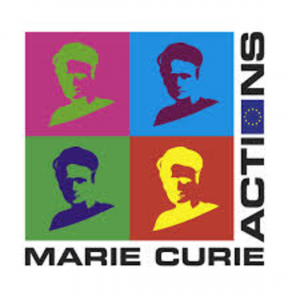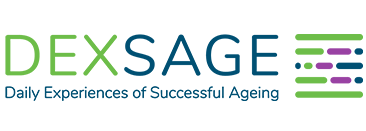In 2030 nearly 30% of the European population will be aged 60 and above. Population ageing has been identified by the European Commission as one of the social challenges of the 21st century. But ageing does not mean an inevitable decline of abilities and detachment from active life. Furthermore, social and environmental context is no less important for enjoying later life than physical health. The concept of Successful Ageing has emerged through empirical research on how successfully individuals can cope with increasing limitations and challenges inherent to the older age.

There are major differences between what Successful Ageing means to researchers and to older adults themselves. Academics emphasize its biomedical aspects. As opposed to that, senior respondents point to the type and quality of daily activities as detrimental to their wellbeing and the overall quality of life. What older adults consider most important for their Successful Ageing are primarily its psychosocial components. Results of the British Quality of Life Survey list the following dimensions as key factors:
It is therefore the day-to-day experiences along with their subjective evaluation that shape older people’s quality of life and determine their valuation of life and psychosocial wellbeing.
Research Objectives
This project collects new and unique data on the objective and subjective characteristics of selected episodes nested within older adults’ everyday time-use patterns. It aspires to be a benchmark study using new data collection techniques and a new methodological approach that not only collects real-time experiences but also gives voice to the respondents with regard to which events they choose to report in the end-of-the-day recalls.
The study addresses 3 main research questions:
1) how older adults organize their days?
Older adults enjoy great temporal freedom, but they also lack of the time-structuring element of paid work. In case of the unemployed this situation has been associated with the feeling of void and detachment from the rest of society. It can be expected that also for older adults, maintaining a good quality of life after retirement requires finding new temporal anchors (TA) that is activities around which time might be organized in a meaningful way. Building new ‘schedules’ is ultimately what individuals do to keep busy, stay active, and avoid despondency, all of which are important daily objectives for older adults.
2) how particular everyday events are experienced by senior citizens?
Standard time-use surveys, while being arguably the best source of detailed behavioural data for large samples, do not typically collect information on the meaning of particular activities for respondents, or the role a given episode played in the context of all experiences over a day. Experience sampling method, also referred to as Ecological Momentary Assessment, collects the data in real time, and the respondent gives an account of the situation while it is unfolding. It is therefore very exact and allows for recoding not only objective characteristic of particular event but also subjective, emotional assessment ‘in situ’. The end-of-the-day questionnaire provides additional insights on how the entire day was experienced and which events were of key importance to respondent’s subjective wellbeing and organization of their time.
3) how objective events and their subjective evaluation are linked with individual’s sociodemographic characteristics and their SWB?
Social inequality is reflected in individual’s everyday behaviours, including their eating practices or leisure activities, and the situation is no different for older adults. Individual’s health status, resources (including social support and cultural competences), or the characteristics of the area of residence are all strongly determined by their social position, and, in particular, educational attainment. This study will demonstrate how individual’s socioeconomic status (SES) affect their subjective assessment of particular experiences over the day. It will also analyse whether people who do not work for pay structure their time differently depending on their social position, and what effect these differences may have on their wellbeing. Finally, also the context of events (e.g. where, with whom they took place) will be compared with regard to possible differences in activity settings depending on respondent’s SES.
Methodology
This project will use Experience Sampling Method (ESM) to collect data on everyday experiences from a sample of 400 independently-living adults aged 65 and more. This way of collecting time-use data allows for sampling selected events over the day and collecting more information on each of those as well as on individual’s emotional state at that point in time. Respondents are asked at randomly selected times over the day to provide information on ‘their objective situation and subjective state of mind’. The main source of variance in reported levels of wellbeing has been shown to be individual dispositions and activity characteristics. There is also a variability in the level of enjoyment depending on the day of the week and time over the day.
Aside from the standard ESM this project will use the end-of-the-day questions to give voice to respondents and allow for reporting what they find particularly important for how their day was organized or for their subjective wellbeing. Overall the project uses 3 modes of data collection:
1/ Standard Experience Sampling Method. Events sampling is done randomly, the only principal being equal distribution across the day and balanced distribution between days of the week, with weekends being oversampled for the purpose of statistical analyses. Each respondent will be prompted at a specific point over the day to provide account of what he or she is doing. Those accounts will be completed using online/ mobile apps. If this is not possible, which might be the case among oldest respondents, pen & paper technique will be used instead.
In this part we aim to obtain equal distribution of episodes covering morning/ midday/ afternoon/ evening for 7 days per week. This allows for variance in subjective wellbeing to be analysed by time over the day/ week as well as in relation to each activity and individual’s characteristics, such as gender, age, and SES.
2/ End-of-the day accounts of subjective wellbeing. Respondents will be free to decide which events and experiences they want to report. They will be instructed that these events should be the ones that have been particularly important for their general wellbeing on a given day, whether in a positive or negative way. This module will also collect information on emotions linked with those activities, such as how meaningful, demanding, relaxing, and enjoyable they were.
This module allows identifying events that are considered essential for subjective wellbeing including subjective and objective characteristics of those events. Individual’s reports will be analysed in the context of all provided data – that is the randomly sampled events and temporal anchors for how the day was structured.
3/ End-of-the-day accounts of temporal structures. Respondents are requested to report events that they see as essential for how their day has been structured that is events around which other activities were organized. This module collects detailed information on those events, including their subjective and personal aspects, for example, whether respondents felt limited in this activity because of internal (e.g. own health) or external (e.g. transportation, access) factors.
This module allows identifying major events over the day, including their subjective assessment, and whether they are seen as voluntary or not which suggest whether they were in or out of respondent’s control. It will show not only how older people structure their days but how much freedom they really have in doing it. It will also demonstrate whether particular types of time-structuring are seen as more meaningful or associated with greater wellbeing.
Funding

This research is funded by the European Commission under the Marie Skladowska-Curie Actions Individual Fellowship, grant number 840113.

This project has received funding from the European Union’s Horizon 2020 research and innovation programme under the grant agreement No 840113.
Research Objectives
This project collects new and unique data on the objective and subjective characteristics of selected episodes nested within older adults’ everyday time-use patterns. It aspires to be a benchmark study using new data collection techniques and a new methodological approach that not only collects real-time experiences but also gives voice to the respondents with regard to which events they choose to report in the end-of-the-day recalls.
The study addresses 3 main research questions:
1) how older adults organize their days?
Older adults enjoy great temporal freedom, but they also lack of the time-structuring element of paid work. In case of the unemployed this situation has been associated with the feeling of void and detachment from the rest of society. It can be expected that also for older adults, maintaining a good quality of life after retirement requires finding new temporal anchors (TA) that is activities around which time might be organized in a meaningful way. Building new ‘schedules’ is ultimately what individuals do to keep busy, stay active, and avoid despondency, all of which are important daily objectives for older adults.
2) how particular everyday events are experienced by senior citizens?
Standard time-use surveys, while being arguably the best source of detailed behavioural data for large samples, do not typically collect information on the meaning of particular activities for respondents, or the role a given episode played in the context of all experiences over a day. Experience sampling method, also referred to as Ecological Momentary Assessment, collects the data in real time, and the respondent gives an account of the situation while it is unfolding. It is therefore very exact and allows for recoding not only objective characteristic of particular event but also subjective, emotional assessment ‘in situ’. The end-of-the-day questionnaire provides additional insights on how the entire day was experienced and which events were of key importance to respondent’s subjective wellbeing and organization of their time.
3) how objective events and their subjective evaluation are linked with individual’s sociodemographic characteristics and their SWB?
Social inequality is reflected in individual’s everyday behaviours, including their eating practices or leisure activities, and the situation is no different for older adults. Individual’s health status, resources (including social support and cultural competences), or the characteristics of the area of residence are all strongly determined by their social position, and, in particular, educational attainment. This study will demonstrate how individual’s socioeconomic status (SES) affect their subjective assessment of particular experiences over the day. It will also analyse whether people who do not work for pay structure their time differently depending on their social position, and what effect these differences may have on their wellbeing. Finally, also the context of events (e.g. where, with whom they took place) will be compared with regard to possible differences in activity settings depending on respondent’s SES.
Project Background
In 2030 nearly 30% of the European population will be aged 60 and above. Population ageing has been identified by the European Commission as one of the social challenges of the 21st century. But ageing does not mean an inevitable decline of abilities and detachment from active life. Furthermore, social and environmental context is no less important for enjoying later life than physical health. The concept of Successful Ageing has emerged through empirical research on how successfully individuals can cope with increasing limitations and challenges inherent to the older age.
There are major differences between what Successful Ageing means to researchers and to older adults themselves. Academics emphasize its biomedical aspects. As opposed to that, senior respondents point to the type and quality of daily activities as detrimental to their wellbeing and the overall quality of life. What older adults consider most important for their Successful Ageing are primarily its psychosocial components. Results of the British Quality of Life Survey list the following dimensions as key factors:
It is therefore the day-to-day experiences along with their subjective evaluation that shape older people’s quality of life and determine their valuation of life and psychosocial wellbeing.
Methodology
This project will use Experience Sampling Method (ESM) to collect data on everyday experiences from a sample of 400 independently-living adults aged 65 and more. This way of collecting time-use data allows for sampling selected events over the day and collecting more information on each of those as well as on individual’s emotional state at that point in time. Respondents are asked at randomly selected times over the day to provide information on ‘their objective situation and subjective state of mind’. The main source of variance in reported levels of wellbeing has been shown to be individual dispositions and activity characteristics. There is also a variability in the level of enjoyment depending on the day of the week and time over the day.
Aside from the standard ESM this project will use the end-of-the-day questions to give voice to respondents and allow for reporting what they find particularly important for how their day was organized or for their subjective wellbeing. Overall the project uses 3 modes of data collection:
1/ Standard Experience Sampling Method. Events sampling is done randomly, the only principal being equal distribution across the day and balanced distribution between days of the week, with weekends being oversampled for the purpose of statistical analyses. Each respondent will be prompted at a specific point over the day to provide account of what he or she is doing. Those accounts will be completed using online/ mobile apps. If this is not possible, which might be the case among oldest respondents, pen & paper technique will be used instead.
In this part we aim to obtain equal distribution of episodes covering morning/ midday/ afternoon/ evening for 7 days per week. This allows for variance in subjective wellbeing to be analysed by time over the day/ week as well as in relation to each activity and individual’s characteristics, such as gender, age, and SES.
2/ End-of-the day accounts of subjective wellbeing. Respondents will be free to decide which events and experiences they want to report. They will be instructed that these events should be the ones that have been particularly important for their general wellbeing on a given day, whether in a positive or negative way. This module will also collect information on emotions linked with those activities, such as how meaningful, demanding, relaxing, and enjoyable they were.
This module allows identifying events that are considered essential for subjective wellbeing including subjective and objective characteristics of those events. Individual’s reports will be analysed in the context of all provided data – that is the randomly sampled events and temporal anchors for how the day was structured.
3/ End-of-the-day accounts of temporal structures. Respondents are requested to report events that they see as essential for how their day has been structured that is events around which other activities were organized. This module collects detailed information on those events, including their subjective and personal aspects, for example, whether respondents felt limited in this activity because of internal (e.g. own health) or external (e.g. transportation, access) factors.
This module allows identifying major events over the day, including their subjective assessment, and whether they are seen as voluntary or not which suggest whether they were in or out of respondent’s control. It will show not only how older people structure their days but how much freedom they really have in doing it. It will also demonstrate whether particular types of time-structuring are seen as more meaningful or associated with greater wellbeing.
Funding

This research is funded by the European Commission under the Marie Skladowska-Curie Actions Individual Fellowship, grant number 840113.

This project has received funding from the European Union’s Horizon 2020 research and innovation programme under the grant agreement No 840113.
